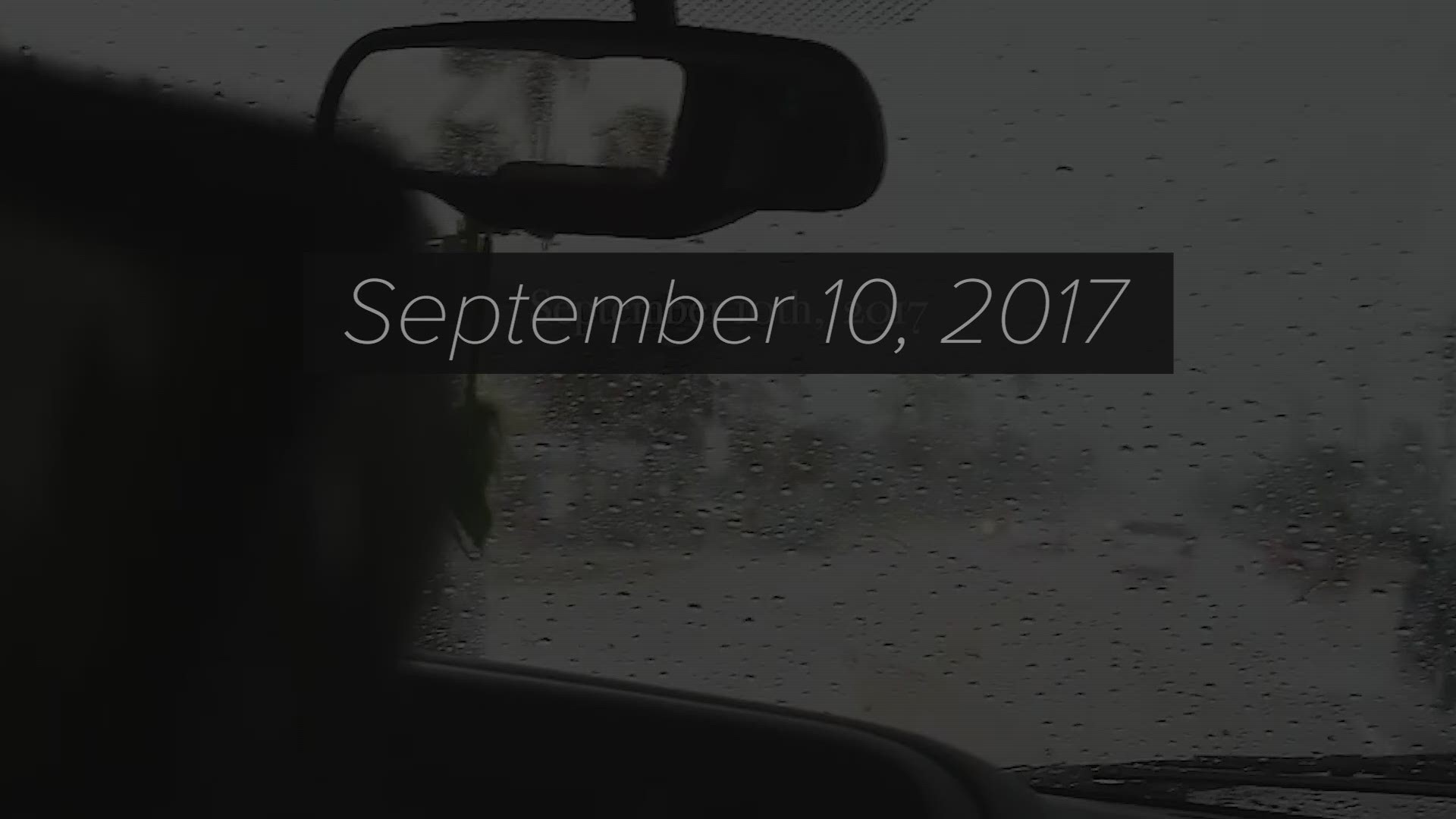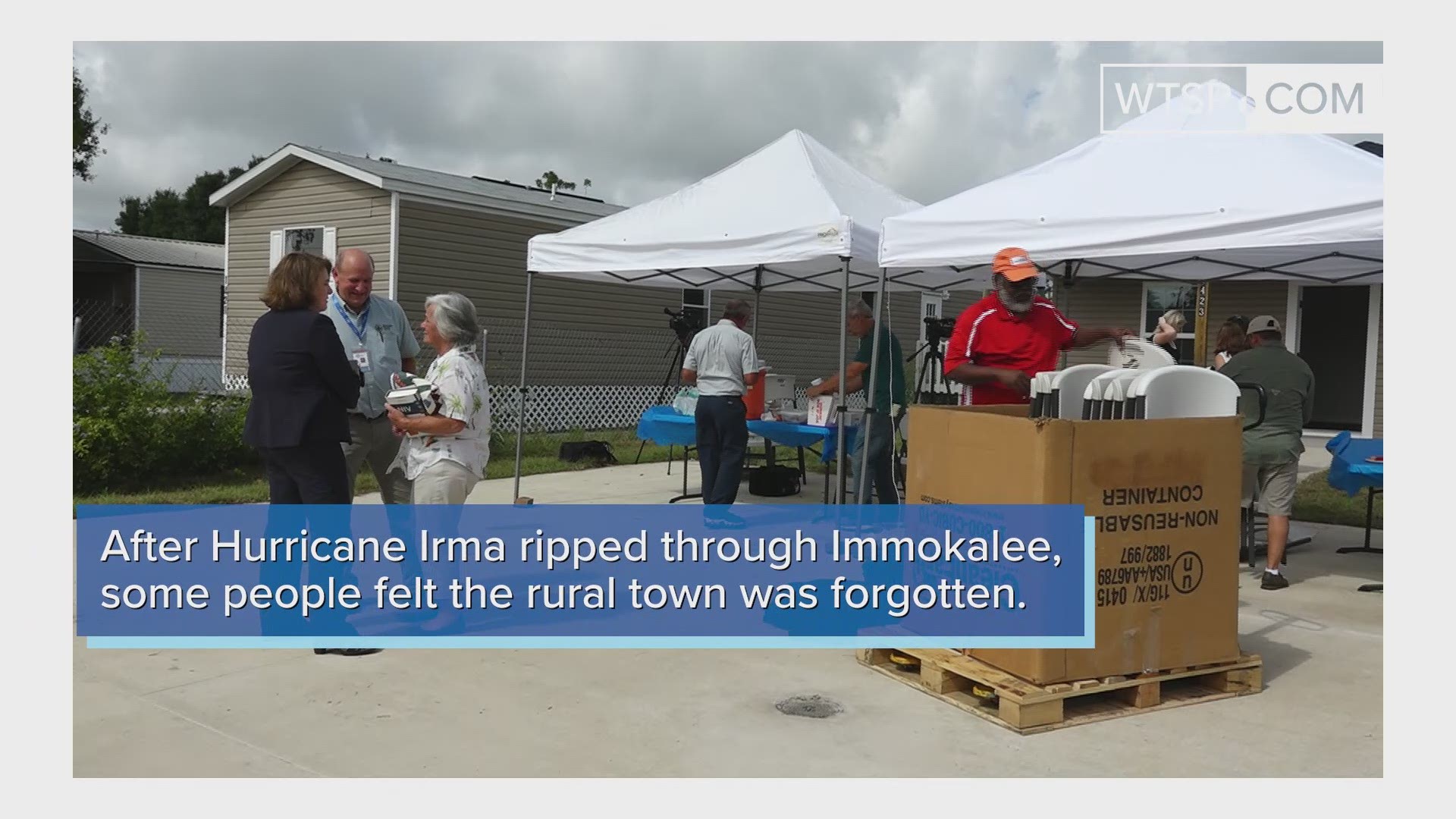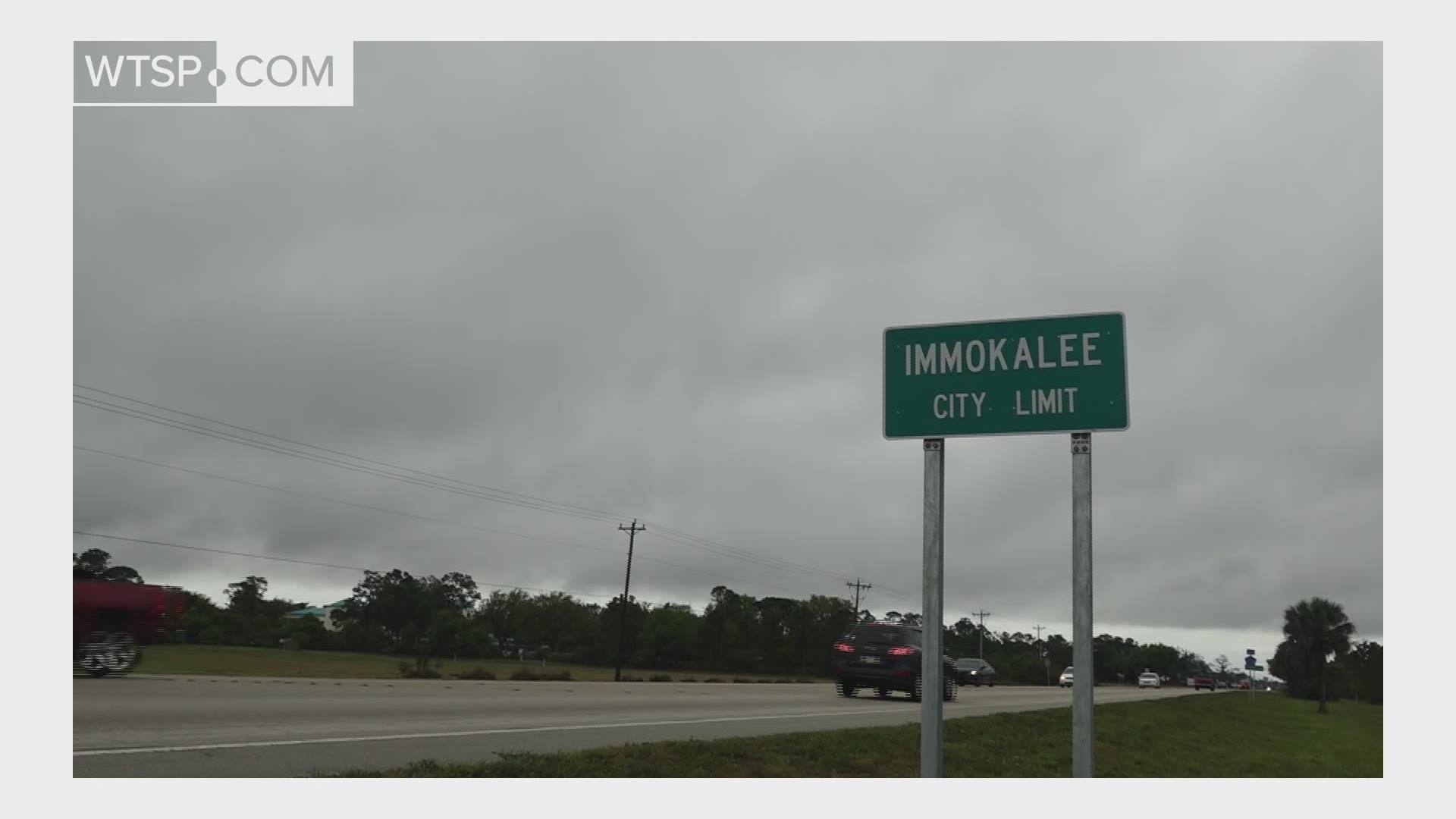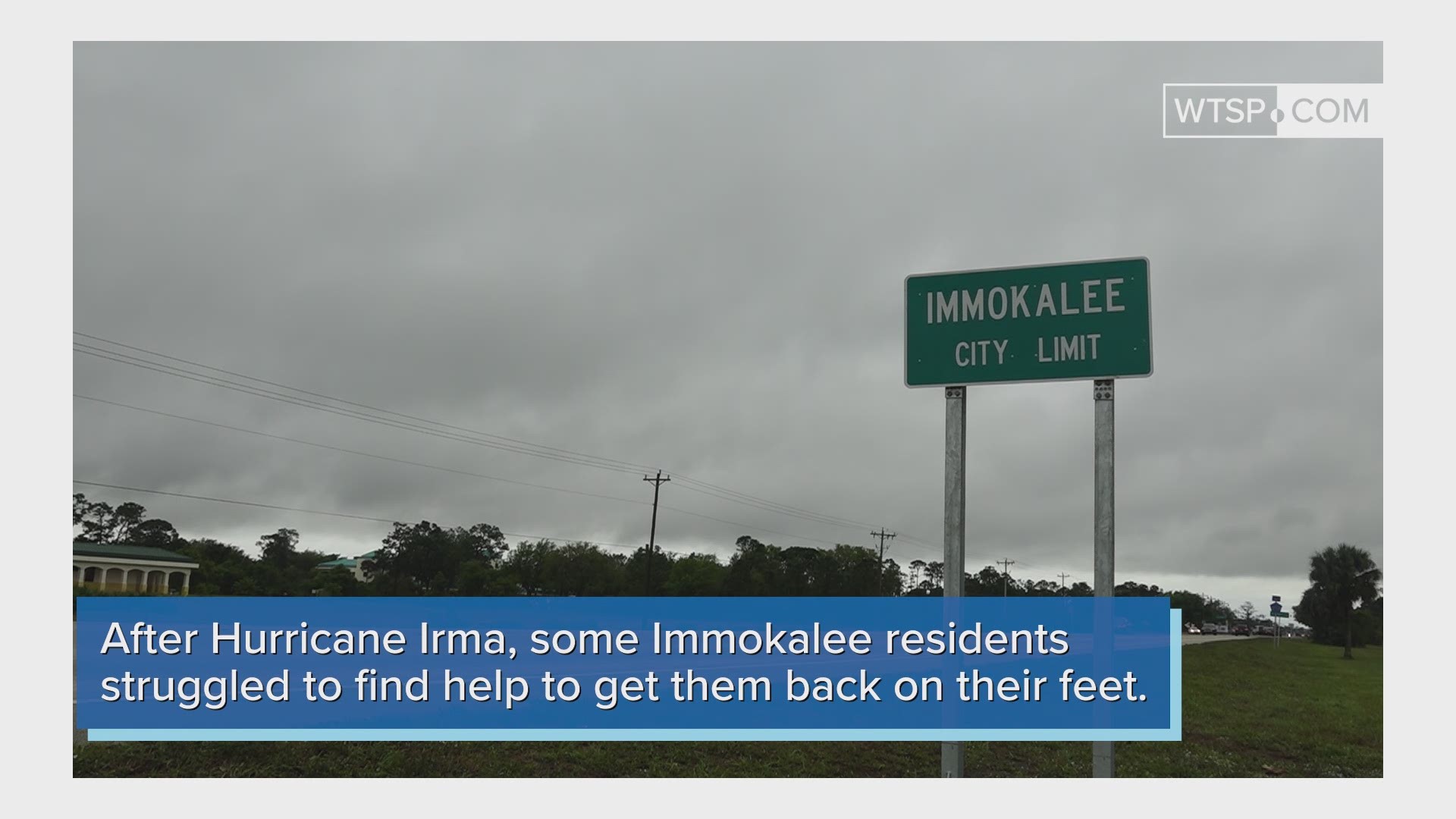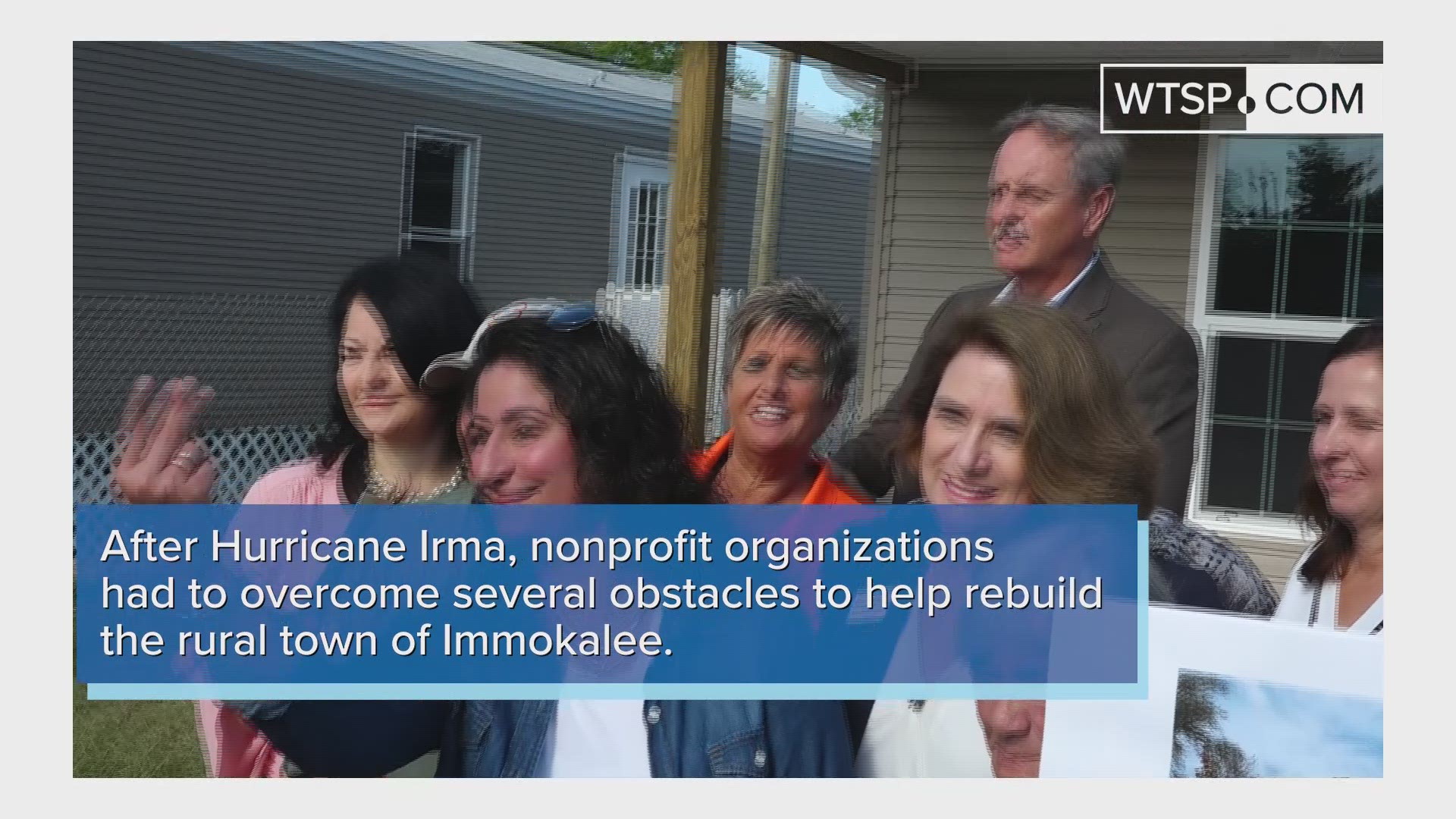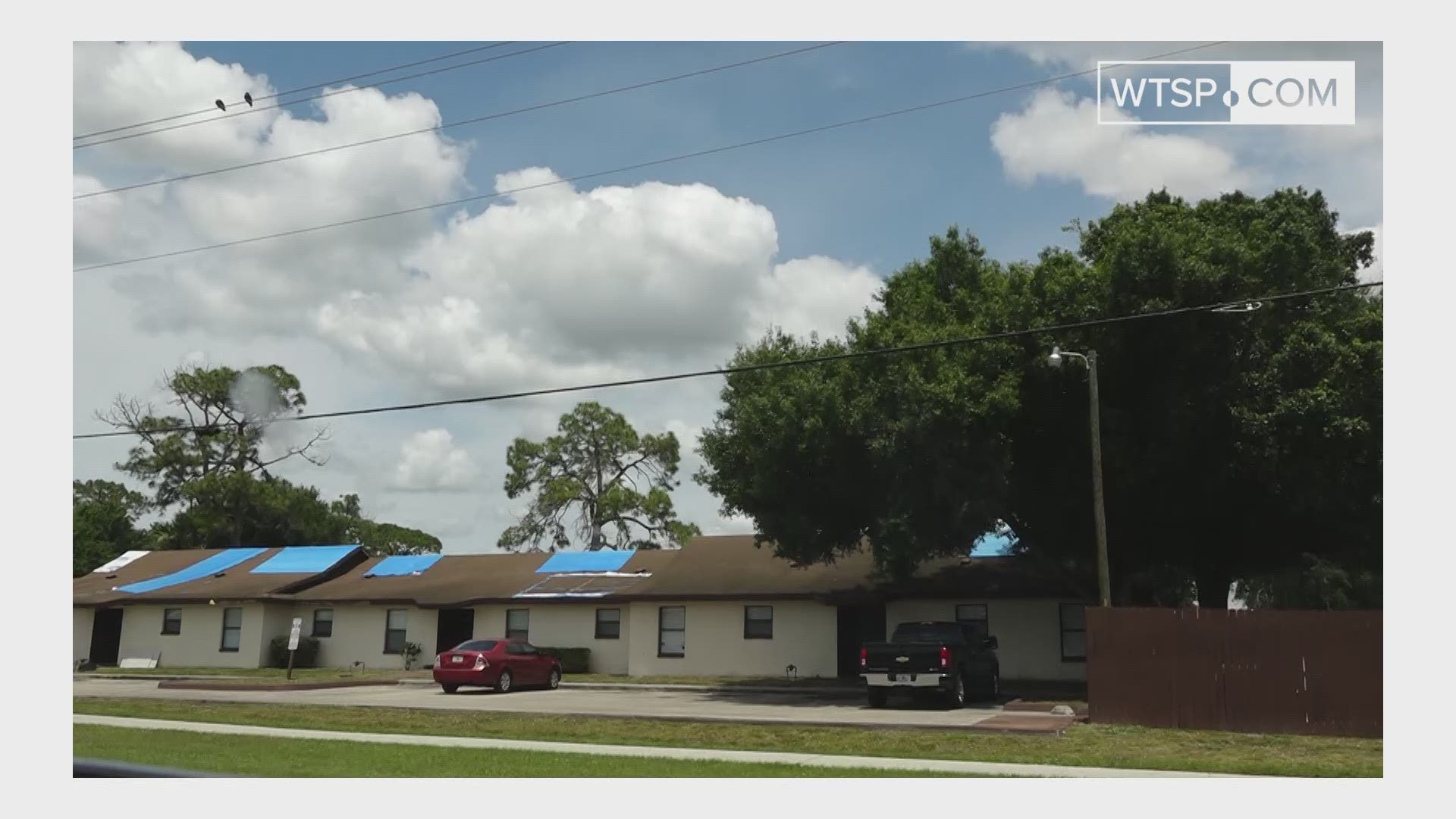IMMOKALEE, Fla. — When you drive through the major streets of Immokalee, Fla., the town looks like it has fully recovered from Hurricane Irma. Renovated storefronts and new housing developments give off a pristine small-town feel. But if you were to navigate your way deeper into the community, you’ll see tarps on roofs, black mold on apartments, mobile homes damaged by strong winds and vacant lots where houses and small businesses used to be.
On Sept. 10, 2017, the once Category 5 storm left the people of Immokalee with flooded streets, dismantled power lines and limited access to clean water. Damaged cell towers made it difficult for the community of more than 25,000 people to reach out for help.
Whether the area was helped, depends on who you speak to. Some say Immokalee was forgotten after the storm swept through Southwest Florida. But, people like Frank Rincon think otherwise. Rincon is the director of the Benison Center, which was established shortly after the hurricane. It aims to make sure the community's basic needs are met.
“When you look at things from a different perspective, I think Immokalee is better off because of Irma,” Rincon said. “Everything that Immokalee had been going through before the storm was just boiled to the surface because of the hurricane."
Sub-par infrastructure, lack of affordable housing and job opportunities are just some of the problems Immokalee was dealing with before the storm.
“I think it would have been forgotten if the people here hadn’t stepped in,” explained Andrea, a longtime resident of Immokalee.
The people Andrea is talking about are leaders of local nonprofit organizations, county employees and people who have lived in Immokalee all their lives. People like Christie Bentancourt who was born in Collier County and raised in Immokalee. Some people describe her as the voice of the rural town.
“I know a lot of people, and I try to stay neutral,” said Bentancourt. “I am a voice in Immokalee. I am from Immokalee. But, I’m not the only voice in Immokalee. I’m one of many.”
Bentancourt has worked for Collier County for nearly 20 years. As an Immokalee native, and the operations manager of Immokalee’s Community Redevelopment Agency, Bentancourt knows exactly where and who still needs help after Hurricane Irma.
“There are still a lot of places that need a lot of work, but it comes down to money,” said Bentancourt.
That was the case for Debbie Coe, a long-time resident of Immokalee whose mobile home was severely damaged by the hurricane force winds.
“The backside of the house was gone. You could put your hand through it,” Coe recalled.
Coe, whose home was not insured, turned to the Federal Emergency Management Agency for help. She received $8,000 from FEMA; but unfortunately, the money only went so far.
“I used the money for a roof and repairs and just trying to make it work. But it didn’t work,” she said, explaining that her home was uninhabitable.
After Hurricane Irma, a group of citizens came together to form the Immokalee Unmet Needs Coalition. Members of the nonprofit organization took it upon themselves to help residents get back on their feet after the storm. The IUNC helped Coe demolish of what was left of her mobile home, cleared the land and built her a brand-new house.
“I’m one of the lucky ones that is getting help,” Coe said. “There are so many other people that are not.”
Some of those people who have been displaced or are still living in dilapidated homes just don’t know where they can go for help, Coe explained. “There needs to be more information put out,” she said.
However, some of those people who really need help will not ask because they are dodging deportation.
Immokalee is an agricultural town and is considered one of the top winter tomato producers in the United States, according to the Institute for Policy Studies.
Immigrants from some South American countries and the Caribbean Islands apply for H-2A Temporary Agricultural Work Visas and make their way to farming towns throughout the United States. Immokalee is one of those agricultural towns.
Out of the 372,880 people who live in Collier County, about 25,000 are undocumented immigrants, according to the Migration Policy Institute.
Foreigners who overstay their H-2A Visa usually need help after a catastrophic event. However, most of them don’t reach out because they are afraid of being deported.
“People who are here not legally are trained not to answer the door,” explained William McDaniel, District 5 Collier County Commissioner.
“Is there somebody that’s going to get dropped through the cracks? Absolutely. Those folks who are taught to not answer the door when a public official shows up,” McDaniel said.
If undocumented immigrants are not seeking help for basic needs or aid after a storm, it’s likely they will not participate in the census.
Twenty-five thousand people can make a significant difference in the amount of federal funds a town like Immokalee can receive if they fail to fill out the census form.
Data from the census is used to determine what neighborhoods need improvements to infrastructure and even towns that would benefit from a new store or a factory, which in return can generate better employment opportunities.
The unincorporated city doesn’t solely rely on national government funding. At the local level, the town has the support of the Community Redevelopment Agency, which was created in March 2000. There are several CRA projects on the agenda. Lighting, transportation and stormwater drainage are just some of the projects on the list.
In the case of making sure the town gets all the help it needs beyond the surface, board members of the Immokalee Unmet Needs Coalition continues to work with the local government and other nonprofits.
The unspoken task left on the list is figuring out a way to help undocumented immigrants when the chips are down.
What other people are reading right now:
- Police: Man broke into home to snatch little girl but grandpa wasn’t going to let that happen
- Snake hitchhikes from Florida to Hawaii in man's backpack
- 10-hour wait times reported for new Hagrid roller coaster at Universal Orlando
- 2 dead in crash involving tractor trailer, 3 motorcycles on I-75 near Ocala
- Glass skydeck shatters 103 stories high under guests' feet
►Have a news tip? Email desk@wtsp.com, or visit our Facebook page or Twitter feed.

